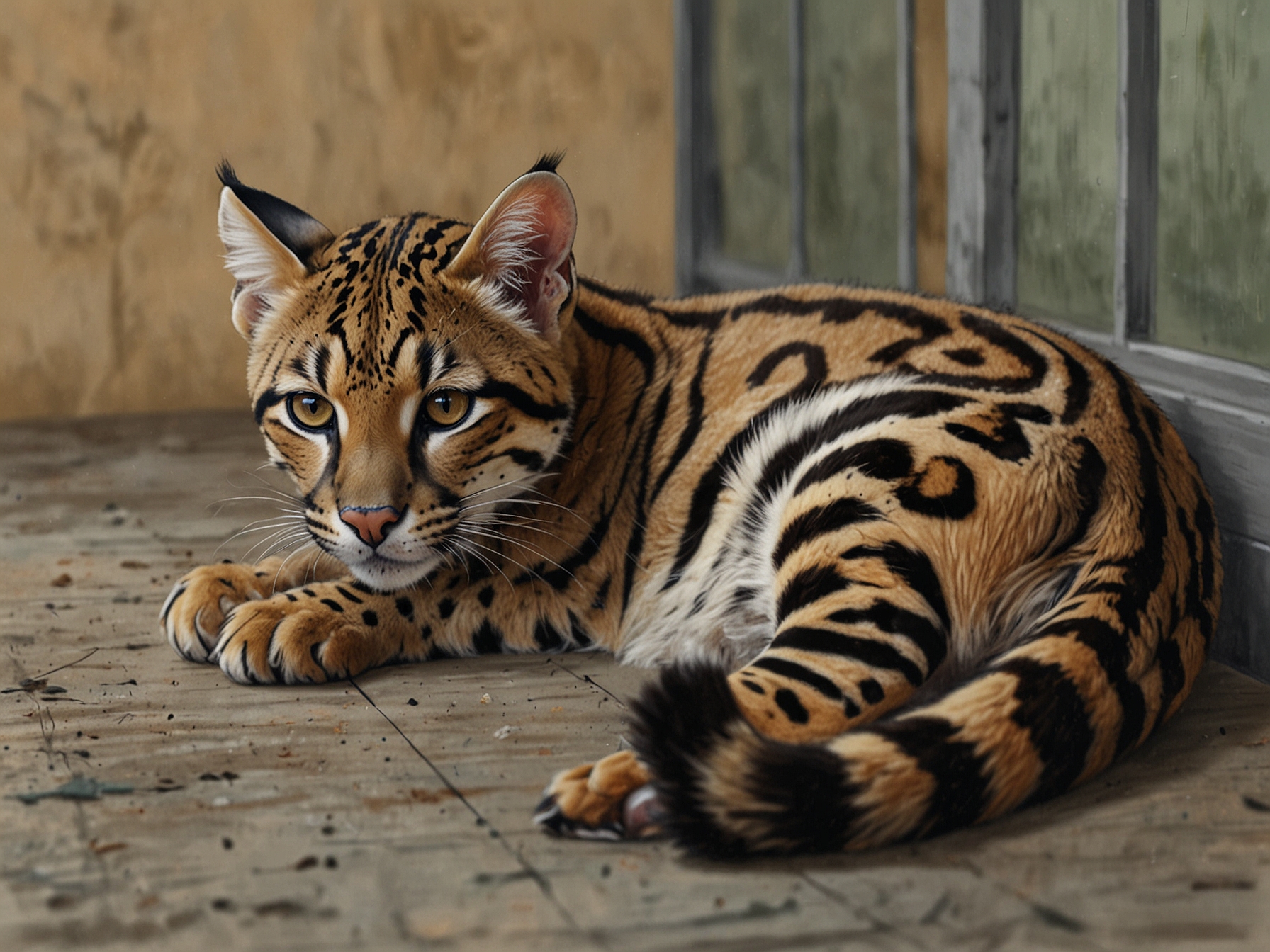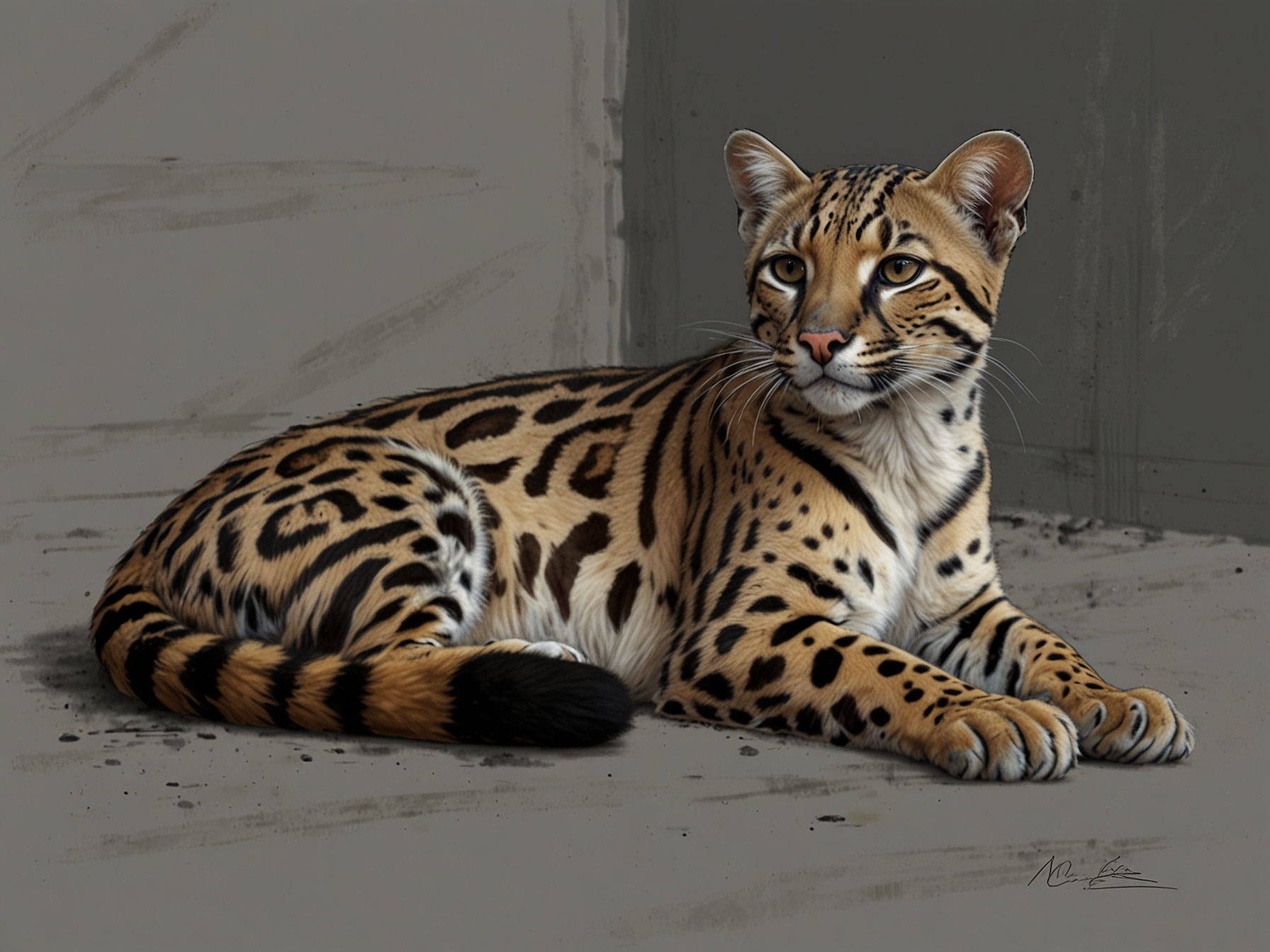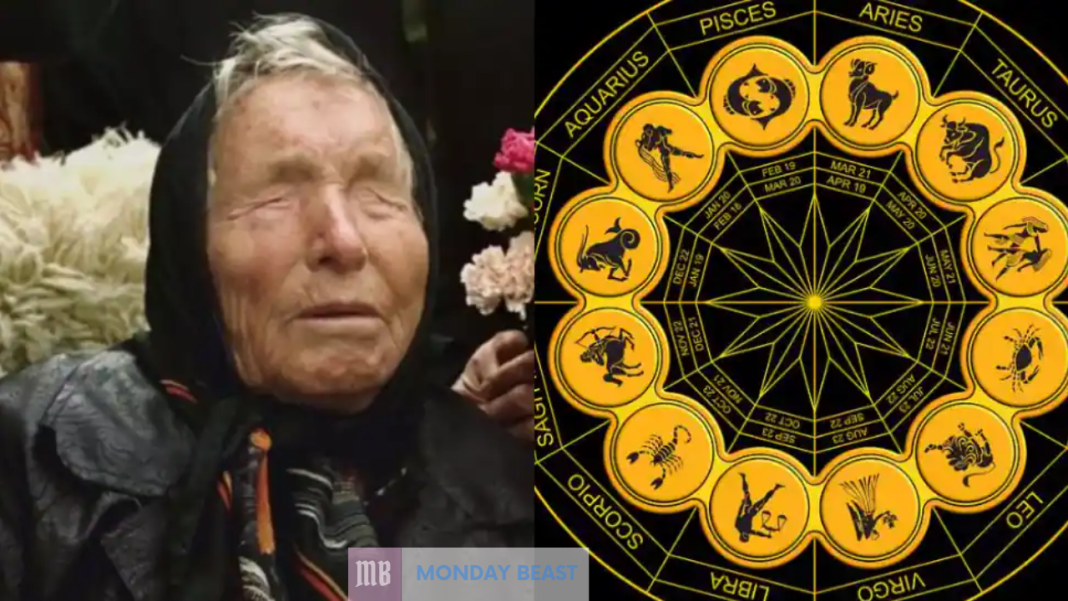In a shocking turn of events in Bello, Antioquia, an ocelot was found in distress. Rescuers discovered the animal showing clear signs of malnutrition. It was tied up in a cage, deeply concerning for wildlife advocates and animal lovers alike.

Authorities reported that the conditions were inadequate. This ocelot, once a majestic creature of the tropical forests, clearly faced a grim reality while in captivity. There’s a sense of urgency surrounding this incident. What does this mean for the future of the animal?
After the rescue, the ocelot was taken to a rehabilitation center. Here, at the Metropolitan Area Wildlife Care, it receives veterinary care. But will this be enough to help the ocelot regain its strength?

As experts evaluate the ocelot’s condition, there are tough questions to consider. Unofficial reports suggest the animal has been severely domesticated. This high degree of domestication raises difficult prospects for its return to the wild.
The ocelot, naturally a carnivorous creature, thrives in the wild. Can it adapt again, or is it too late? The trauma it endured can’t be overlooked. These questions linger heavily as the animal receives care.

In a related note, one suspect was captured during the rescue operation. This is a crucial development. He was allegedly involved in the illegal captivity of the ocelot. Authorities stated he faces charges for wildlife possession.
This incident highlights broader issues regarding wildlife protection. How can we ensure that animals like this ocelot receive the care they deserve? As details unfold, a conversation about our responsibilities to wildlife is essential.
As communities learn of this ocelot’s rescue, awareness grows. People become more conscientious about wildlife and the consequences of captivity. It’s a reminder that every animal deserves compassion and protection in its natural habitat.
The recovery of this ocelot is a story of survival amid adversity. As we reflect on its journey, we must also think about our role. How can we advocate for animals in need? This story encourages us to act.




